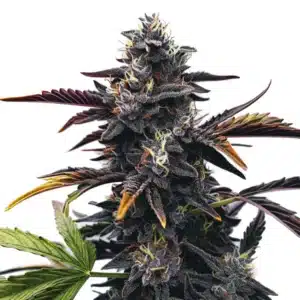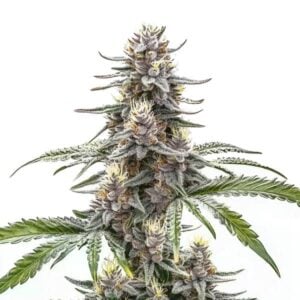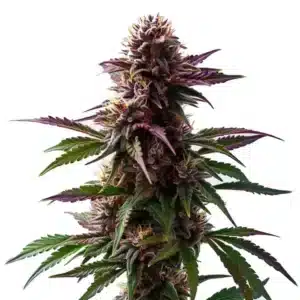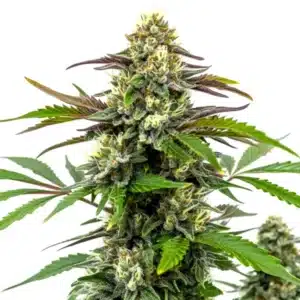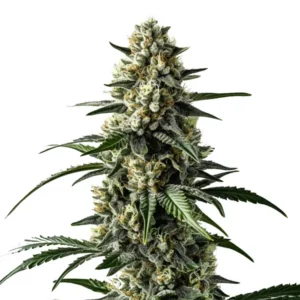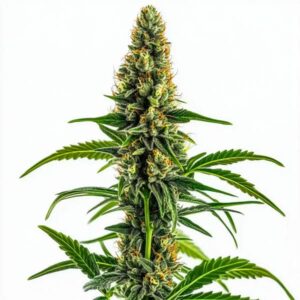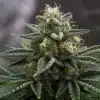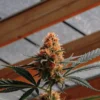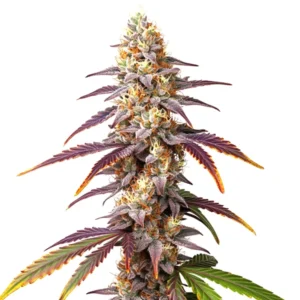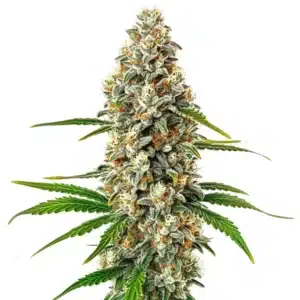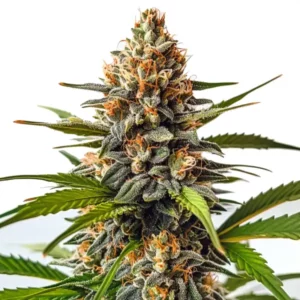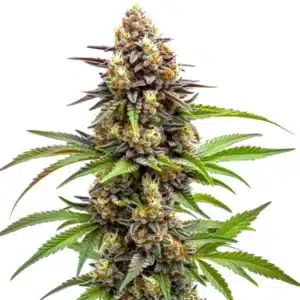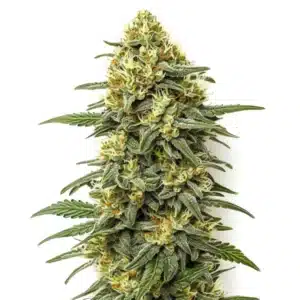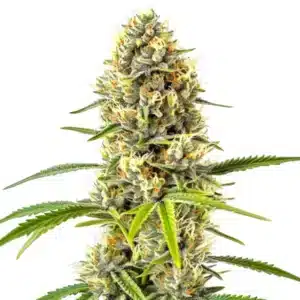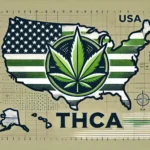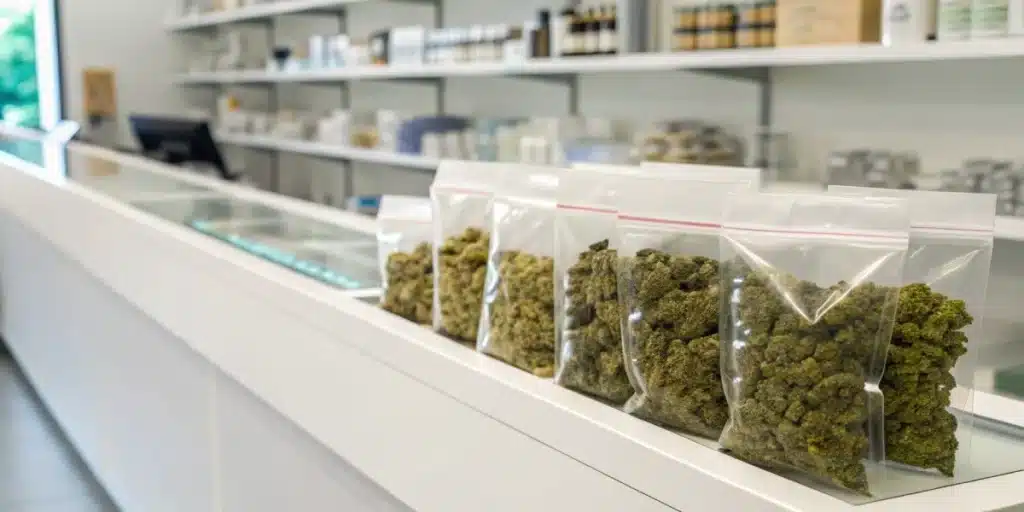
Sweden Weed Laws & Culture: Trends, Access & Policy
Legal Status in Sweden
Narcotics Act Summary
In Sweden, marijuana laws in Sweden are among the strictest in Europe. Cannabis is illegal for all purposes, including recreational and most medical use. Possession of even small amounts is a criminal offense, and penalties range from fines to imprisonment, with punishments increasing for more serious offenses.
Sweden classifies cannabis under its 1968 Narcotics Act, marking it among the most restricted substances in the country. Authorities treat any cultivation, distribution or possession as a criminal act.
Recommended Strains
Narkosis
|
|
THC | 18% (Medium) |
|
|
Type | Feminized |
|
|
Yield | High |
|
|
Phenotype | 60% Indica / 40% Sativa |
Cannatonic
|
|
THC | 4% - 6% (Low) |
|
|
Type | Feminized |
|
|
Yield | High |
|
|
Phenotype | 50% Indica / 50% Sativa |
Moreover, regulators keep the schedule updated to align with international conventions. Government committees review scientific data and propose adjustments when necessary. While critics argue that strict bans hinder research, legislators insist that a firm stance shields communities from potential harms. That approach shapes how law enforcement and prosecutors handle cases involving even small amounts of cannabis for personal use.
Penalties for Possession
Swedish courts impose fines or prison terms for anyone caught with cannabis. A typical first offense for personal possession carries a fine tied to daily income, often equating to a few hundred euros. Judges weigh factors such as quantity, intent and criminal record. Repeat offenders risk harsher sanctions, with sentences rising to several months behind bars if the court deems them persistent users or small-scale dealers.
In serious cases, prosecutors press charges under aggravated narcotics violations. Sentencing guidelines allow up to two years in prison for larger amounts or evidence of distribution networks. Defense attorneys routinely negotiate for lighter penalties, arguing for rehabilitation programs or community service. However, courts often favor punitive measures as a deterrent against broader drug misuse.
Medical Use Exceptions
Sweden permits limited use of specific cannabis derivatives for medical treatment. Doctors can prescribe medications like Sativex for multiple sclerosis symptoms and severe epilepsy when conventional therapies fail. The Medical Products Agency assesses each application and grants approval only for patients with documented conditions and a clear treatment history. Providers issue prescriptions under strict conditions, and pharmacies dispense authorized products only after verifying patient records.
Furthermore, research trials explore cannabis-based remedies for chronic pain and chemotherapy-induced nausea. Health authorities maintain tight controls on import channels to prevent diversion into illicit markets. In addition, medical professionals must complete training on dosing protocols and monitor patients closely. That rigorous process ensures patient safety while offering a controlled path to relief.
Promos & Deals
Enforcement and Police Action
Routine Stop-and-Search
Police officers in Sweden regularly conduct stop-and-search operations in high-risk neighborhoods and near transport hubs. They rely on behavioral cues, visible paraphernalia or intelligence reports to justify checks. Officers often patrol popular gathering spots, such as festival venues, where they suspect sweden weed consumption among attendees. Consequently, individuals carrying even minimal amounts risk immediate detention and questioning.
Additionally, the authority’s proactive approach extends to roadside controls during major holidays. Patrol teams set up checkpoints to inspect vehicles for narcotics. They use quick drug screening kits to detect cannabis residue. Citizens learn to expect these measures and often dispose of any illicit substances before routine stops, yet occasional positive tests still lead to further investigation and referral to prosecutors.
Court Sentencing Patterns
Judges in Swedish courts generally favor fines over custodial sentences for low-level drug offenses. They apply standard sentencing guidelines that prioritize rehabilitation over incarceration. Defendants with no prior convictions typically receive conditional fines, allowing them to avoid jail if they comply with probation terms. That pragmatic system reduces prison overcrowding while encouraging offenders to seek support services.
However, courts spare no mercy for repeat offenders or small-scale dealers. In those scenarios, sentencing panels consider both the quantity of the substance and criminal intent. They impose harsher penalties, sometimes including mandatory prison time and forfeiture of assets tied to drug activities. Data shows that convictions for distribution steadily increased over the past decade, reflecting intensified enforcement against organized trafficking.
Decriminalization Debates
Advocates and critics clash over whether Sweden should shift toward decriminalizing cannabis. Proponents argue that low-level possession penalties waste judicial resources and stigmatize users. They point to neighboring countries that report no surge in consumption after easing restrictions, suggesting fiscal savings and improved public health outcomes. Several parliamentary motions call for pilot programs that treat personal use as a civil offense rather than a criminal one.
Opponents warn that loosening laws may spark higher use among youth and strain social services. They invoke Sweden’s traditional zero-tolerance approach as a societal safeguard. Lawmakers continue to study international models, including Portugal’s decriminalization experiment, to assess potential impacts. Meanwhile, grassroots campaigns host public forums to reshape policy narratives and drive legislative change.

Medical Cannabis Developments
Authorized Indications
Medical authorities in Sweden have approved cannabis-based medicines for a handful of conditions. Patients with multiple sclerosis gain relief from spasticity through prescriptions of Sativex, while certain forms of epilepsy respond to cannabidiol treatments. Oncologists also apply for special permits to access products that ease chemotherapy-induced nausea. Regulators limit indications to ensure treatments target severe and treatment-resistant cases only.
In parallel, clinical trials examine cannabis compounds for chronic pain management and PTSD symptoms. Universities collaborate with the Medical Products Agency to collect robust safety data before expanding prescription guidelines. That stepwise approval process reassures both practitioners and patients, ensuring that only evidence-backed therapies reach the market. Consequently, the medical community gradually builds expertise in tailored dosing regimens.
Prescription Requirements
Earning a prescription for cannabis-based remedies demands careful assessment and documentation. Patients must consult a specialist who files an application with the Medical Products Agency, detailing prior treatment failures. Physicians verify the patient’s medical history and explain potential side effects before prescribing standardized dosages. That procedure helps prevent misuse and maintains transparency across treatment centers.
Moreover, prescriptions require periodic reviews to confirm sustained benefits. Doctors adjust dosages based on patient feedback and clinical observations. Patients receive only a limited supply per fill, necessitating regular follow-up visits. Pharmacies cross-check prescription records with national registries to avoid duplicate dispensing, reinforcing accountability throughout the supply chain.
Patient Access Models
Sweden channels medical cannabis through tightly controlled pharmacies, not cannabis clubs or dispensaries. Patients present a valid prescription and government-issued ID at pharmacies licensed to distribute specialized medications. Pharmacists counsel patients on storage, titration and potential interactions. That hands-on guidance fosters proper adherence and reduces risks tied to self-medication.
Furthermore, a home-delivery pilot for chronic pain patients started in select regions, easing access for those with mobility challenges. Healthcare networks partner with courier services under secure protocols to transport medicines directly to registered residences. That model received positive feedback, as patients appreciate discreet and reliable deliveries. It also sets the stage for future innovations in distribution.
Social Attitudes and Advocacy
Public Opinion Surveys
Surveys in recent years reveal shifting attitudes toward cannabis in Sweden. While a majority still oppose recreational use, support for medical applications climbed significantly. Younger demographics express more leniency, often comparing sweden weed laws unfavorably to those in other European nations. Transitional shifts in public sentiment reflect growing awareness of therapeutic benefits and debates on personal freedom.
Moreover, pollsters found that about 40 percent of respondents favor decriminalization of small-quantity possession an increase from just 20 percent five years ago. That trend strengthens calls for legislative reform and signals a more open conversation in mainstream media. At the same time, concerns over youth exposure remain high, with many advocating for stricter age checks and education campaigns to balance evolving views.
NGO and Activist Functions
Non-governmental organizations play a central part in shaping public discussion. Groups like Riksförbundet Narkotikafritt Samhälle maintain an abstinence-focused stance, hosting seminars that highlight potential risks of cannabis use. Conversely, advocacy networks such as Swedish NGO for Legalization champion policy changes, organizing demonstrations and presenting petitions to parliament. They also provide resources on harm reduction strategies and patient support.
In addition, activists leverage social media to share personal stories and research findings. Online campaigns attract international attention, pressuring politicians to address inconsistencies between Sweden’s strict policies and broader European trends. Through workshops and public panels, NGOs foster dialogue between healthcare professionals, law enforcement and affected individuals, encouraging evidence-based approaches to drug policy.
Media Coverage Trends
Media outlets in Sweden have increased coverage of cannabis-related topics, blending news reports with feature articles. Journalists explore everything from international legalization case studies to patient testimonies, often citing recent studies on medical efficacy. That balanced reporting helps inform the public, though sensational headlines still appear in tabloid sections, framing cannabis users as potential criminals.
Furthermore, investigative pieces expose loopholes and bureaucratic hurdles in the medical cannabis system. Reporters highlight patient stories where delays in approvals lead to prolonged suffering. At the same time, some columns praise emerging delivery pilots and question whether decriminalization might cut crime rates. As media attention intensifies, it prompts policymakers to consider policy adjustments more seriously.
Policy Prospects
Political Party Platforms
Major Swedish parties present varied stances on cannabis reform. The Left Party explicitly calls for decriminalization of personal use and supports expanded medical access. The Green Party endorses regulated sales in supervised settings. Meanwhile, the Social Democrats remain cautious, proposing small pilot schemes without committing to full legal changes. The Moderate Party generally opposes liberalization, framing strict laws as essential to public safety.
In coalition talks, these positions influence broader agendas. Smaller parties, such as the Liberals, push for evidence-based pilot programs before any nationwide adjustments. That pluralistic debate underscores the complexity of balancing public health, law enforcement priorities and individual liberties. Consequently, future legislation may evolve incrementally, reflecting compromises among stakeholders.
EU Influence on Reform
Sweden operates within a European framework that increasingly leans toward more flexible cannabis policies. The European Court of Justice clarifies regulations on CBD products, prompting member states to revise national rules. Moreover, EU-funded research projects investigate cannabis applications, offering Sweden a chance to align with regional scientific standards. Brussels’ directives encourage transparency in pharmaceutical licensing, which could accelerate approvals for new treatments.
At the same time, EU policymakers debate whether to classify cannabis under stricter control or permit wider medical use across borders. Sweden watches these shifts closely, aware that adopting EU guidelines can streamline patient access for cross-border care. As a result, Brussels’ evolving stance on cannabis could tip the balance in Sweden’s domestic reform discussions.
Pilot Programs Under Discussion
Government agencies are assessing small-scale pilots for regulated cannabis sales in controlled environments. Proposals include university-led studies to measure health outcomes and crime impacts within defined areas. That scientific approach aims to test whether state-supervised outlets can reduce black-market activities. Policy briefs suggest trials could last two years, with periodic evaluations informing any broader legalization efforts.
In parallel, healthcare authorities consider expanding home-delivery pilots for medical users. Positive feedback from initial regions prompts discussions to extend services nationwide. Additionally, collaborations between municipalities and research institutes plan to map consumption patterns and economic effects. These pilots reflect a data-driven mindset that seeks practical evidence before sweeping nationwide reforms.

FAQs about sweden weed
Can patients grow cannabis at home?
Swedish law strictly prohibits private cultivation of cannabis, even for medical use. Patients must rely on licensed producers and authorized pharmacies to obtain medicines. Any attempt to grow plants at home carries criminal charges, including fines or possible imprisonment. Authorities enforce these rules to prevent diversion into illicit markets and to maintain consistent product quality and patient safety.
What’s the fine for small amounts?
Fines for possession of minor quantities of cannabis depend on personal income and extent of use. First-time offenders typically face administrative fines calculated as daily penalty units, ranging from around €50 to €200. Courts set exact amounts based on individual factors such as earnings and the precise weight seized. Failing to pay can escalate penalties, potentially leading to community service or short jail terms.
Are CBD products legal nationwide?
CBD products with less than 0.2 percent THC content qualify as legal consumer goods across Sweden. Consumers can purchase oils, capsules and topical creams from shops and online retailers without a prescription. Producers must register each product with authorities to confirm THC levels meet legal limits. That framework allows broad access to CBD while keeping psychoactive cannabis strictly regulated.


